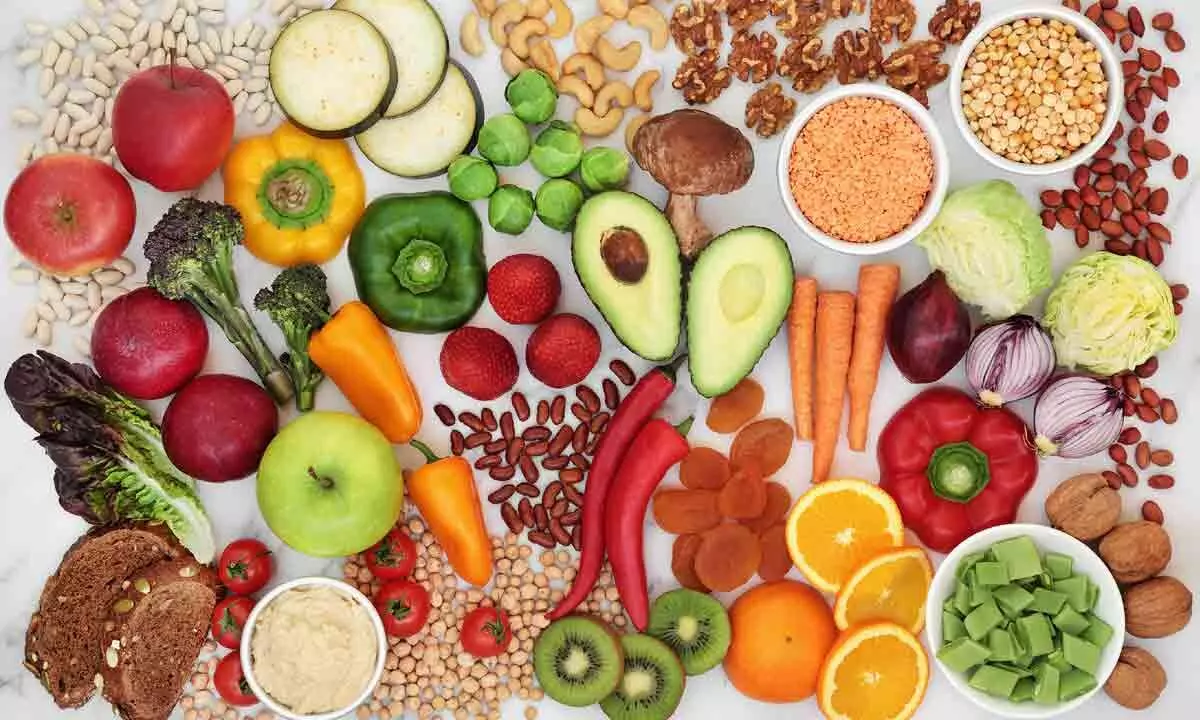Types of food diabetics should avoid

Living with diabetes requires careful attention to diet and lifestyle choices to maintain stable blood sugar levels
Living with diabetes requires careful attention to diet and lifestyle choices to maintain stable blood sugar levels. While it's essential to focus on consuming a balanced diet rich in nutrients, there are certain foods that individuals with diabetes should avoid or limit to prevent spikes in blood sugar levels and manage their condition effectively. Here are seven types of foods diabetics should avoid:
1. Sugary Beverages: Beverages high in sugar, such as soda, fruit juices, sweetened tea, and energy drinks, can cause rapid spikes in blood sugar levels. These drinks provide empty calories and can contribute to weight gain, which is a risk factor for type 2 diabetes. Opt for water, herbal teas, or unsweetened beverages to stay hydrated without affecting blood sugar levels.
2. Processed Carbohydrates: Processed carbohydrates like white bread, white rice, pasta, and sugary cereals are quickly broken down into glucose in the body, leading to sharp increases in blood sugar levels. Choose whole grains such as brown rice, quinoa, barley, and whole-grain bread, which are higher in fiber and release glucose into the bloodstream more slowly, helping to stabilize blood sugar levels.
3. Sweets and Desserts: Foods high in refined sugars, such as cakes, cookies, pastries, candy, and ice cream, should be limited or avoided by individuals with diabetes. These treats can cause significant spikes in blood sugar levels and provide little nutritional value. Instead, satisfy your sweet cravings with fresh fruits, sugar-free desserts, or small portions of dark chocolate.
4. Fried and Fatty Foods: Fried foods like French fries, fried chicken, and potato chips are high in unhealthy fats and calories, which can contribute to insulin resistance and weight gain when consumed in excess. Additionally, these foods may increase the risk of heart disease, a common complication of diabetes. Opt for healthier cooking methods such as baking, grilling, or steaming, and choose foods rich in monounsaturated and polyunsaturated fats like avocados, nuts, seeds, and olive oil.
5. High-Sodium Foods: Processed and packaged foods, including canned soups, frozen meals, deli meats, and salty snacks, are often loaded with sodium, which can lead to high blood pressure and cardiovascular issues, especially for individuals with diabetes. Too much sodium can also increase thirst and fluid retention, exacerbating diabetes symptoms. Choose fresh, whole foods and season dishes with herbs, spices, and citrus juices instead of salt.
6. Trans Fats: Trans fats are a type of unhealthy fat found in fried foods, baked goods, margarine, and packaged snacks. These fats not only raise bad cholesterol levels but also lower good cholesterol levels, increasing the risk of heart disease and worsening insulin resistance. Check food labels for hydrogenated or partially hydrogenated oils and avoid products containing trans fats whenever possible.
7. High-Glycemic Index Foods: Foods with a high glycemic index (GI) can cause rapid spikes in blood sugar levels. Examples include white bread, white rice, potatoes, and sugary breakfast cereals. Instead, focus on low-GI foods such as non-starchy vegetables, legumes, whole grains, and lean proteins, which are digested more slowly and have a gentler impact on blood sugar levels.
In conclusion, managing diabetes involves making mindful choices about food and lifestyle habits to keep blood sugar levels within a healthy range. By avoiding or limiting foods high in sugar, refined carbohydrates, unhealthy fats, sodium, trans fats, and high GI foods, individuals with diabetes can better control their condition and reduce the risk of complications in the long term. Consulting with a registered dietitian or healthcare provider can provide personalized guidance on creating a balanced and nutritious meal plan tailored to individual needs and preferences.










